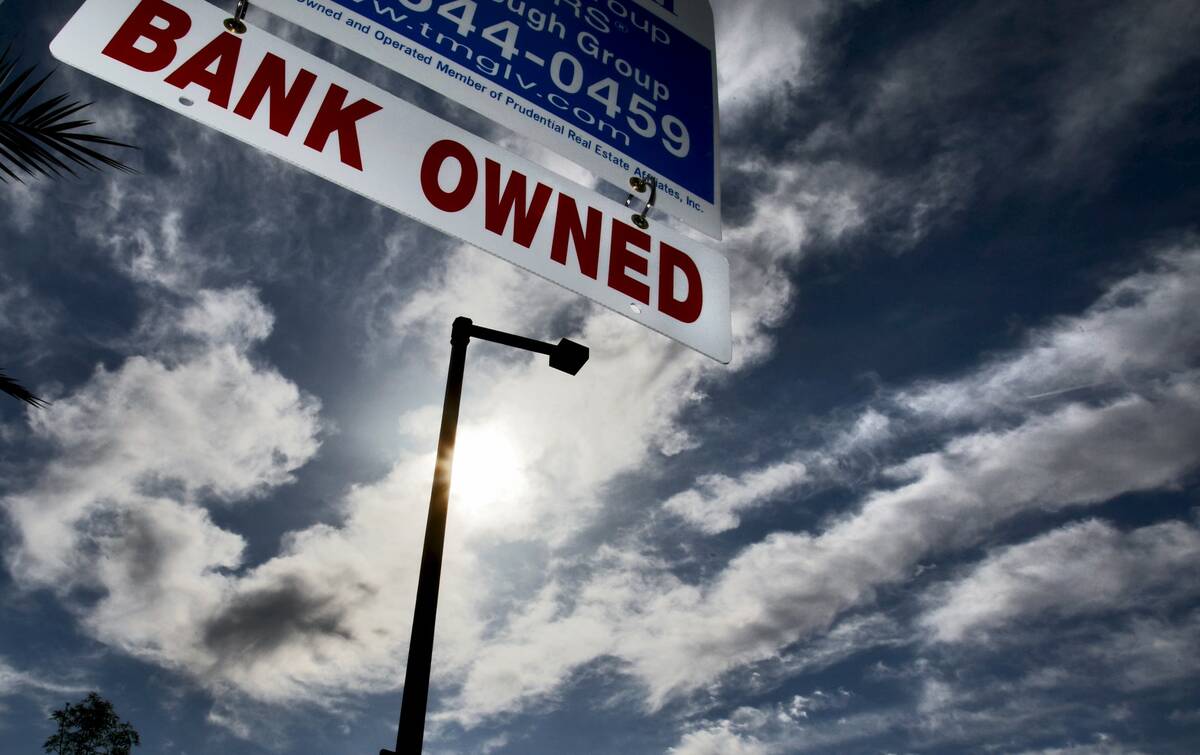‘It was crazy bad’: Las Vegas real estate experts talk Great Recession, current market
Leslie Carver remembers the exact moment she knew something was wrong with America’s housing market.
It was June 2006 and Carver, who has worked as a real estate agent in the Las Vegas Valley for nearly 30 years, said the real estate market in Vegas suddenly went from people camping out days before housing projects went up for sale with multiple offers on every property, to a complete standstill.
“Suddenly, we weren’t getting multiple offers, and suddenly, we weren’t even showing, so I was like, ‘What happened?’” she said.
Carver said she remembers that time period vividly because she was interviewed that month by Money magazine.
“They wanted to do an interview about how great the Las Vegas market was,” she said. “I said, ‘Well to be honest our market has kind of slowed down a little, I’ve got several listings, but I think our market has dried up a little bit.’ And they typed this article up, ‘according to Leslie Carver, the Las Vegas real estate market has dried up like a desert.’ And I thought, ‘Oh my God, why?’”
Carver took heat from colleagues and fellow agents about the article, but her analysis turned out to be more than true, in fact, it was incredibly prophetic.
The Las Vegas Review-Journal spoke to about half a dozen veteran real estate analysts, brokers and agents about what it was like to go through the 2008-09 Great Recession, and if there were any lessons to learn from the massive financial disasters that unfolded. Most said they do see similarities between 2024’s real estate market and the lead up to 2008, but are unsure of where the market is headed now given the complexity of the current economy.
From bad to worse
In 2007, the entire U.S. real estate market plunged to all-time, historic lows. Fueled by lax mortgage lending rules which caused the mortgage-backed securities industry to plummet in value, the Great Recession was the worst financial crisis since the Great Depression in the 1930s. Millions of Americans lost their homes, and Carver, who was doing a lot of short sales and foreclosures because of her banking connections, said it was definitely tough to see so many families go through horrendous times.
“No one had money to do anything,” she said. “These families were literally coming to me to help them at least do what they thought was the right thing by not letting the home foreclose by selling it, and just basically breaking even and walking away. So it was a very difficult time for a lot of families just figuring out how to at least move on and not have a foreclosure looming over them.”
According to home sales statistics provided to the Las Vegas Review-Journal by Las Vegas Realtors, who pull their data from the Multiple Listing Service, the worst year for sales was actually 2007 when only 18,555 homes were sold. To put that into context, from 2000 to last year, the average number of homes sold each year in the valley was approximately 36,936, with 2021 being a record sales year when 50,010 homes sold.
Forrest Barbee, a valley real estate agent who was recently named to the Nevada Real Estate Commission by Gov. Joe Lombardo, said there was a point in time when basically everyone in the industry was questioning their career decision.
“You always start out in denial. ‘Ah, this will be OK.’ Well, it wasn’t for about five years. And you start seeing people get out of the business and out of companies, and you saw companies compressing and contracting. As a manager you’re now doing three jobs instead of one and probably with a pay cut too.”
Barbee said the obliteration of the mortgage lending industry, including Countrywide Financial, along with massive banking failures drilled home how serious the situation was. He said even those who had planned for a rainy day in the industry, which was few and far between, also had a tough time weathering the storm.
“If you work in sales, they say put enough money aside so you can get by for six months or a year. But in that market, I would say most people would have guessed the worst case scenario would have been a 30 percent reduction in the market, not 70 percent.”
What did we learn?
Estimates are that the U.S housing market lost approximately $7 trillion in home equity and that 8 million Americans lost their jobs because of the financial crisis. The end result was an unprecedented taxpayer bailout from the federal government to the tune of $700 billion that went exclusively to large banks and companies.
Darren Welsh, corporate counsel for Berkshire Hathaway HomeServices, said the biggest thing he learned from the downturn is things are perceived to be going well, until they aren’t. He said the fever around the housing market continued even though prices were skyrocketing leading up to the financial crisis.
“Nobody was as cautious as you would think. It’s sort of like worrying about the Second World War, like ‘Oh, you know, the Nazis will never get that bad, you know what I mean?’ And we never really thought it would be that bad and then it just all imploded, it was crazy bad.”
Welsh sees a few similarities between that market and today’s real estate scene due to the spending, building and buying splurge brought on by the pandemic, however he does believe the government may have learned a few lessons from the financial crisis given the handouts that were dispersed during COVID. Welsh pointed to the government bailing out big banks during the Great Recession, however during the pandemic it was trying to make sure the middle class wasn’t the hardest hit.
“I personally think (the government) were like, ‘We can’t let this happen again.’ And it’s funny because that’s how they treated the depression in the ‘30s. At first they were like, ‘Get over it, go get another job.’ And then pretty soon there were people sleeping in tents outside the White House, and they’re like, ‘Holy sh—.’”
Barbee, who first started working as a real estate agent back in 2003, said if there is anything he has learned from the Great Recession and the wild swings of the real estate market, is to basically hope for the best, but always be prepared for the worst.
“Give up the notion of control,” he said. “It’s more about if you have a good mop bucket to clean up the messes.”
Contact Patrick Blennerhassett at pblennerhassett@reviewjournal.com.
























